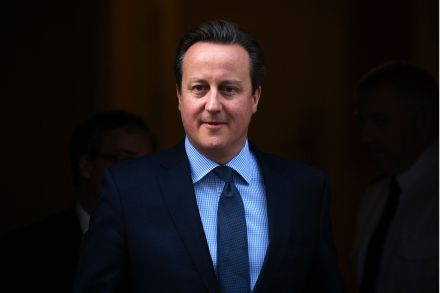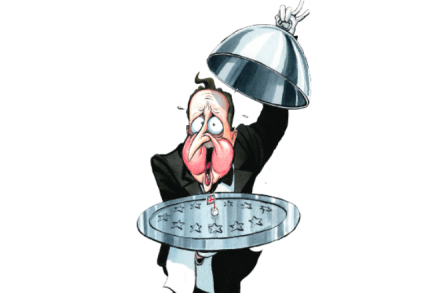Books and arts opener – 10 March 2016


In this week’s cover feature, Rod Liddle and Douglas Murray look at Britain and Europe’s approach to deportation. In Britain, we can’t get rid of jihadis, sex-gang ringleaders and drug lords – so we try to deport old ladies, says Rod. In Europe, it’s worse, says Douglas. Their attitude to migrants is suicidal. Thanks to

From ‘Colonel Churchill’, The Spectator, 11 March 1916: Colonel Churchill is being found out. The charm, once universal, no longer works, or works only occasionally and on a limited number of those exposed to it… To watch this fevered, this agonised struggle to regain the political fortune which the arch-gambler threw away by his own
‘You’ll never guess what I heard the oligarchs next door say…’

What might have been Sir: Harry Mount points out that Boris Johnson is two years older than David Cameron (Diary, 27 February). Both, however, began their careers in the same year. On 15 June 1988 I interviewed David Cameron for a post in the Conservative Research Department; on 26 July it was Boris’s turn (‘Johnston’
You can’t do that there ’ere Some of the things which have been banned under Public Spaces Protection Orders, according to a report by the Manifesto Club: Kettering More than four people standing within vicinity of a motor vehicle. Guildford Shouting. Hillingdon Gathering in groups of more than two unless waiting for a bus. Blackpool Engaging

Home An official analysis by the Cabinet Office said that if Britain left the EU it would lead to a ‘decade of uncertainty’. Opponents of Britain remaining in the EU called the report a ‘dodgy dossier’. George Osborne, the Chancellor of the Exchequer, said that the economy would suffer a ‘profound economic shock’ if Britain

One of the marks of a good Home Secretary is a healthy wariness of those in authority who come begging for ever-greater powers. The former Labour Home Secretary Charles Clarke failed on that score. Just over a decade ago, the police persuaded him that they needed the freedom to lock up terror suspects for 90

In this week’s issue, Freddy Gray discusses Donald Trump’s success on Super Tuesday. America has been the world’s most benevolent superpower, Freddy says, but now its turning nasty. What does Trump’s rise say about America? On the podcast, Freddy tells Isabel Hardman: ‘It actually says something quite troubling about America. I think the rise of

From ‘Henry James’, The Spectator, 4 March 1916: Englishmen are not likely ever to forget the generous thought which inspired the late Henry James to become a naturalised Englishman at the moment of England’s greatest distress… Henry James was good enough to say in substance that he was proud of England and her cause, and
In defence of the heads Sir: It is fair for Ysenda Maxtone Graham to criticise heads who garner publicity but neglect the core business of good teaching, if such people exist (‘Big heads’, 20 February). However, targeting Anthony Seldon and Richard Cairns was a mistake. Although both may be what my wife calls ‘media tarts’, Seldon saved
Vote no, vote often David Cameron scorned Boris Johnson’s idea that voting to leave the EU might result in further reforms followed by another referendum. History, though, would side with Boris. — In June 1992 Denmark rejected the Maastrict Treaty, with 50.7 per cent voting against in a referendum. Denmark was granted four opt-outs, including

Home David Cameron, having continued talks through the night in Brussels, announced that he had achieved a ‘special status’ for Britain in the European Union and would call a referendum on it for 23 June. One concession he had wrung was that, for seven years, Britain could decide to limit in-work benefits for EU migrants during

Imagine if Nigel Farage declared that police should be ready to shoot migrants trying to make it from Calais to Britain; saying: ‘I don’t want to do this, but the use of armed force is there as a last resort.’ And imagine that in spite of this — or perhaps because of it — Ukip


From ‘Justice and Security’, The Spectator, 26 February 1916: If the conditions upon which we are willing to make peace are to be summarised, they cannot be summarised better than by the words Justice and Security. It is for these that we and our Allies are fighting. These are the signs in which we shall
I have spent the last nine months setting out the four areas where we need reform and meeting with all 27 other EU Heads of State and government to reach an agreement that delivers concrete reforms in all four areas. Let me take each in turn. First, British jobs and British business depend on being able to

[audioplayer src=”http://rss.acast.com/viewfrom22/spectatorpodcastspecial-davidcameronseudeal/media.mp3″ title=”David Cameron seals the EU deal – but is it any good? Isabel Hardman, James Forsyth and Fraser Nelson discuss” startat=18] Listen [/audioplayer] So in the end, David Cameron’s attempt to renegotiate Britain’s EU membership served to remind us of the case for leaving: the EU is designed in such a way that almost no sensible

‘It’s the constant nit-picking that gets to me.’
